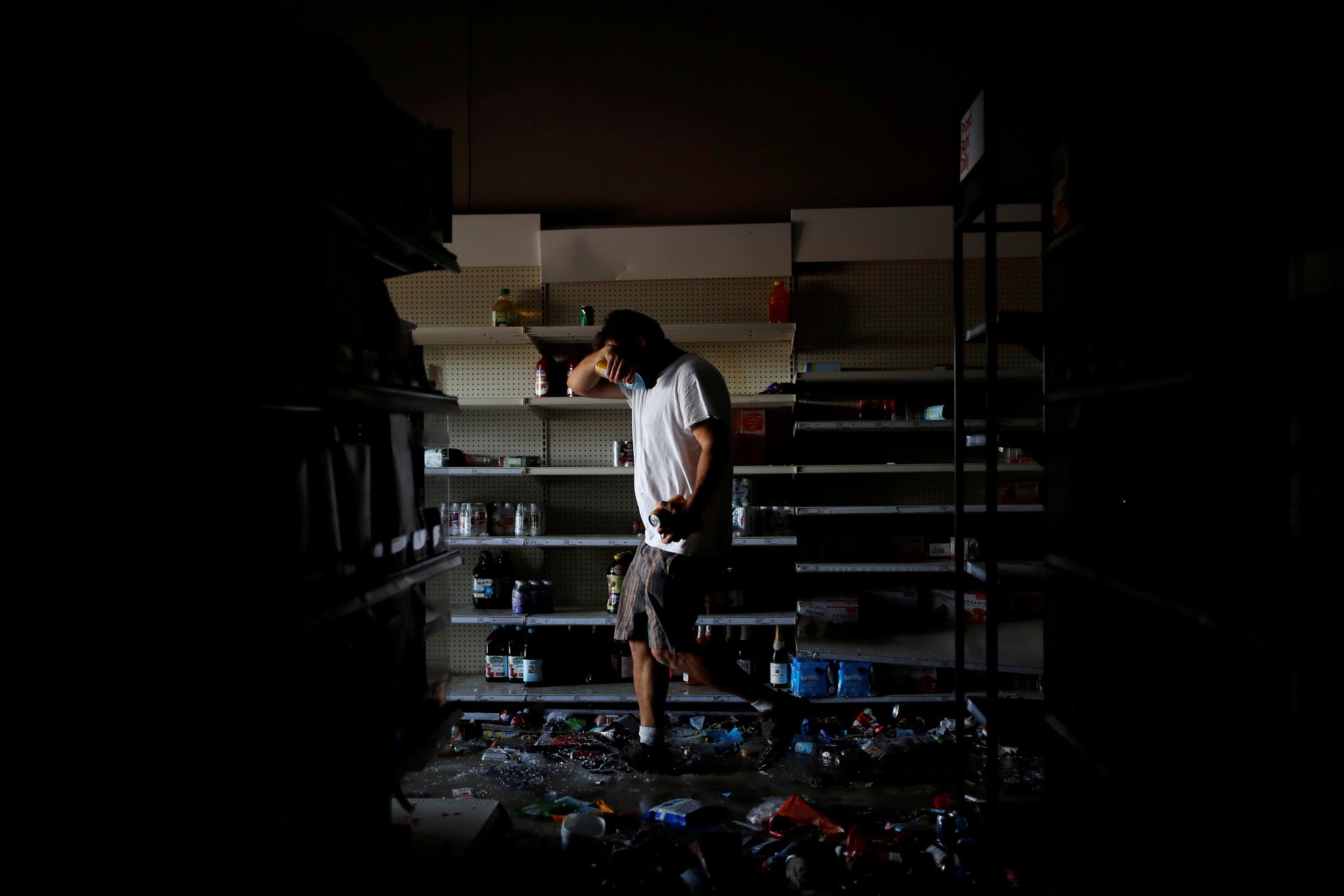The “rioters vs. businesses” narrative is just a distraction from the real problem
Since George Floyd was killed on May 25 in Minneapolis, cities all over the world have erupted in protests. Some of these demonstrations have turned violent. In Minneapolis, protesters appeared to burn down buildings and loot a local Target; other cities have witnessed similar looting and damaged or vandalized property.


Since George Floyd was killed on May 25 in Minneapolis, cities all over the world have erupted in protests. Some of these demonstrations have turned violent. In Minneapolis, protesters appeared to burn down buildings and loot a local Target; other cities have witnessed similar looting and damaged or vandalized property.
These events have resurfaced an old narrative in the US: That protests lead to riots, and that rioters take out their ire on businesses, inflicting outsized damage on small businesses. Gerald Storch, the former CEO of Toys ‘R’ Us, told Fox Business, “I’m not worried about the financial wherewithal of the large companies. It’s the mom-and-pops that will suffer… they are not going to be able to recover from this.”
In some cases, that may certainly be true. But rhetorically, comments like this one play a different role: Shifting the focus to small businesses is an effective way to turn the narrative against protesters. The image of a struggling small business owner elicits more sympathy than the faceless chain stores, and in a sense authorizes aggressive police actions under the guise of keeping them contained.
“When the looting starts, the shooting starts,” tweeted Donald Trump, quoting a slogan with a long history of anti-Black bias, to push forward the threat of police and national guard violence against the looters. On Saturday he followed up with another tweet claiming, without presenting any evidence, that, “[Rioters] are harming businesses (especially African American small businesses)…”
Looting and vandalism does have a history in anti-racist protests, and for a reason. As Martin Luther King famously explained in 1967, “riot is the language of the unheard.”
One of the clearer explanations of why an oppressed people may resort to destruction of property was actually offered in 2003 by Donald Rumsfeld, then secretary of defense, speaking about unrest in Baghdad. “While no one condones looting, on the other hand, one can understand the pent-up feelings that may result from decades of repression and people who have had members of their family killed by that regime, for them to be taking their feelings out on that regime,” he said. There’s no doubt rioting is an effective way to bring attention to a group’s cause.
It’s pretty easy to understand the frustration of the Black community, who has been living in a situation of systemic oppression for centuries. Violent protests, in this sense, are a rebellion, rather than riots.
The distinction between protesters and rioters is racially coded—peaceful protesters of all races are to be empathized with, while rioters and looters are assumed to be Black (even when that’s not true) and are labeled “thugs.” As John McWhorter, a linguist at Columbia University, noted in 2015, “thug” is often used in lieu of racial slurs, and almost exclusively connotes a Black person.
And yet, this narrative continues, even when the facts don’t stack up. Reports have indicated that agitators with the specific intent of turning the protests violent have been behind some, if not most, of the looting and vandalism. Many small business owners have publicly sided with the protesters; in some cases, small businesses that have been looted or vandalized have continued to express their support for the protests. What’s more, accounts of violence seem overblown compared to the number of peaceful protests. As Clark McPhail, a sociology professor at the University of Illinois, has found, news reports can give disproportionate coverage of violent protests.
That’s not to say that small businesses have been completely spared, in Minneapolis or elsewhere, or that the concern about them is unjustified, particularly in the light of America’s troubled history. Notably, in 1992, protests erupted in Los Angeles after a video showed the city’s police beating up construction worker Rodney King. Majority Black neighborhoods became the theater of violence, and 2,200 Korean-American businesses were looted. After a shop owner fatally shot a Black girl in the back, violence escalated. Many businesses took a long time to recover, or never did.
Yet it’s not clear whether this time the situation is comparable, and although small businesses were affected by protests that turned violent, it seems much of the anger was directed towards large corporations. Big-box stores can be seen as part of the system that is oppressing Black people. Target, for example, which is headquartered in Minneapolis, “has long been associated with police surveillance and [Minneapolis Police Department]’s treatment of Black and low-income residents of the city,” as Slate reported.
Some big corporations, perhaps deciding it’s more important to protect their brand than a physical store, have taken steps to show their support for the protesters’ cause. Nike’s new ad reads, “For once, don’t do it. Don’t pretend there’s not a problem in America” (A Nike store was looted in Chicago on Saturday). Target CEO Brian Cornell released a statement acknowledging, “We are a community in pain.” And a spokesperson for AutoZone, which owns one of the facilities burned down in Minneapolis on May 27, told Fox Business, “These are a series of disturbing and tragic events.”
But beyond the understanding of looting, and even the concern for small business, there is a bigger issue—it’s one of priorities. Many who have voiced concern about the damage to businesses have hardly been as prompt condemning the damage to Black lives inflicted by society. In the telling words of US vice president Mike Pence, these people “condemn violence against property or persons,” it seems, in this exact order of priority. Comparing the magnitude of systemic racism and police brutality with damage toward shops or property shows the extent of the former is gravely underestimated.